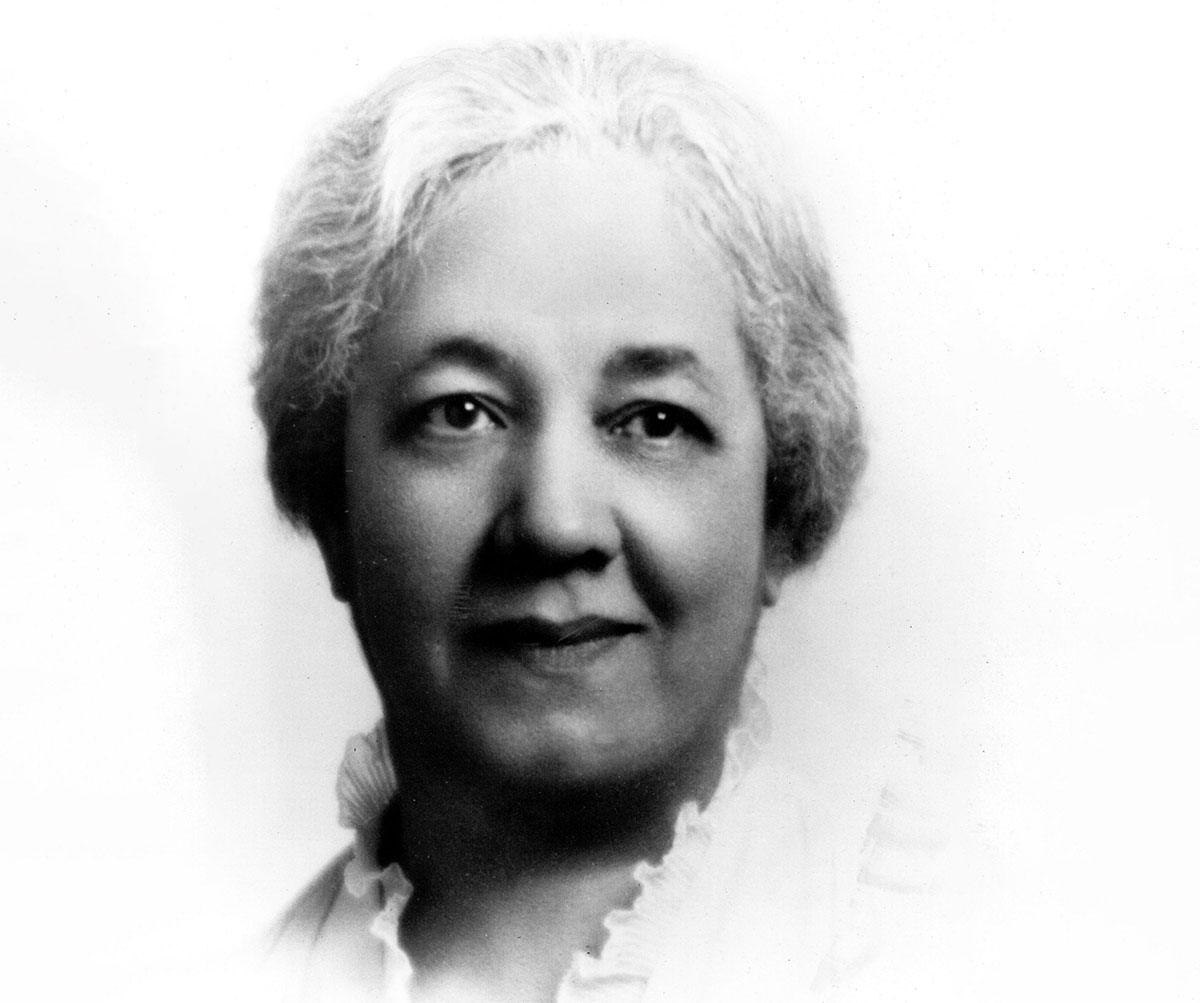Good Idea?
Legal Services Corporation Launches Rural Justice Task Force

The Legal Services Corporation (LSC), a nonprofit established by Congress in 1974, has launched a task force committed to helping low-income residents in rural communities access legal services. It is an effort to address “legal deserts” in the United States.
Legal deserts refer to counties with no or few lawyers available.
“The rural lawyer population is aging and young lawyers plagued with student loan debt are flocking to higher-paying positions offered in cities,” the LSC noted in a press release. “Consequently, as these rural lawyers retire, they often find no one to take over their practices. This pattern indicates that legal deserts will continue to grow if strategic, targeted interventions are not made.”
Wisconsin attorney Rebecca Rapp is a co-chair of the LSC’s Rural Justice Task Force. Quarles & Brady LLP is providing pro bono project assistance.
In 2021, the State Bar of Wisconsin released a report and recommendations on Wisconsin’s experience with rural attorney shortages and what can be done as a part of its Greater Wisconsin Initiative.
Understanding and improving rural access to justice is also a topic at the upcoming Wisconsin Equal Justice Conference on March 10, 2022. Rapp is a panelist.
Watch WisBar.org for more information.
Tech Tip
5 Priority Spends: Where Small Law Firms Should Spend Tech Dollars in 2022

Solo and small law firms may be wondering what technology to invest in in 2022. Attorney at Work caught up with some legal technology experts for suggestions, and here’s what they said:
Start thinking about how you can leverage the cloud for basic day-to-day operations and do more with less (hardware). – Catherine Sanders Reach
Make it mandatory for everyone in your office to use a password manager. This isn’t to “help” you remember passwords, it’s so you can quickly change passwords when accounts are compromised. – Brett Burney
My go-to recommendation for your 2022 tech toolkit is a client relationship management tool, or CRM. CRMs help lawyers organize current clients, as well as target clients and referral sources — allowing you to regularly nurture these valuable relationships. – Camille Stell
Small firms need to realize that many clients prefer to interact with them electronically. The most cost-efficient, secure way to do this is through client portals. Good news: Many practice management solutions now offer client portals as part of the package. – Julie Bays
Cybersecurity should be top-of-mind for all attorneys no matter their firm’s size. Traditional antivirus software is no longer sufficient to protect your computer systems from attack. Small firms should be investing in some form of endpoint detection and response, or EDR. – Sharon Nelson and John Simek
Want more technology tips? Contact Christopher C. Shattuck, Practice Management Advisor (Practice 411™) for the State Bar of Wisconsin.
Got a Nugget to Share?
Send your ideas for interesting facts, trends, tips, or other bits and bytes to wislawmag@wisbar.org, or comment below.
By the Numbers
42
– The number of federal judges confirmed to the bench in 2021, under President Joe Biden.
That number includes 12 confirmations to the federal courts of appeal. In April 2021, Candace Jackson Akiwumi, previously a federal defender in Illinois, was confirmed to fill a vacant judicial seat on the U.S. Court of Appeals for the Seventh Circuit (covering Wisconsin), which opened when Judge Joel Flaum took senior status.
As of Jan. 19, 2022, there were 78 federal judicial vacancies with 26 pending nominees. One vacancy is in the U.S. District Court for the Eastern District of Wisconsin. Biden has nominated Milwaukee County Circuit Court Judge William Pocan to fill the seat.
According to Reuters, former President Donald Trump made 234 federal court appointments during his four-year term.
Source: Reuters; U.S. Courts
From the Archives
Now You Know: The History of Wisconsin’s Black Lawyers

In 2019, the Wisconsin Association of African American Lawyers (WAAL) published The History of Wisconsin’s Black Lawyers.
The publication includes a roster of Wisconsin’s Black lawyers, from the late 1800s to the present day, with summaries about early trailblazers. Mabel Watson Raimey was one of them.
“When she joined the Wisconsin State Bar on October 15, 1927, she became Wisconsin’s first African American woman lawyer and the seventeenth Black woman in the nation to achieve the distinction of being the ‘first’ admitted in her state,” the publication notes.
William T. Greene was one of the first African American lawyers to graduate from U.W. Law School, in 1892. He was one of the first to argue a case before the Wisconsin Supreme Court.
“The lawsuit led to the creation of Wisconsin’s first Civil Rights Act which he authored,” the publication notes of Greene. “It became law in 1895 and is the foundation for modern civil rights legislation in Wisconsin.”
Read the publication at wisbar.org/aboutus/legalhistory/Documents/Black-Lawyers-History-Booklet.pdf.
Quotable
“Loyalty lawyers feel to their firms and their willingness to work hard is not simply, or even primarily, driven by compensation.”
– The 2022 Report on the State of the Legal Market, published jointly by the Center on Ethics and the Legal Profession at Georgetown Law and the Thomson Reuters Institute.
The report notes that law firms “are facing a growing talent war that threatens to upend the industry’s newfound momentum,” primarily in corporate and real estate practices.
And while associate compensation rates are surging, attorney turnover is at record levels, according to the report.
“[T]he legal industry emerging from the pandemic is not the same one that entered it,” said James W. Jones, a senior fellow at the Center on Ethics and the Legal Profession at Georgetown Law and the report’s lead author.
“Much of that change is now happening inside the firms themselves as lawyers reevaluate their careers and life priorities. Thus, the challenge for firms in 2022 will be adapting successfully to these changes, rather than relying on what has worked in the past.”
Source: ABA Journal; PR Newswire.
On the Radar
Critical Issues: Mental Health and Use of Technology

The Wisconsin Court System should prioritize two critical issues – mental health and use of technology – according to the 2022-23 Critical Issues Report issued by the Wisconsin Supreme Court’s Planning and Policy Advisory Committee (PPAC).
“Technology and mental health have been identified as critical issues in past reports,” the report notes. “Since the onset of the global COVID-19 pandemic in March 2020, however, the court system faces a changed landscape due to advancements in technology and widespread mental health issues among litigants. As a result, continued focus on these topics is timely and necessary.”
While mental health focuses on litigants, the report notes the importance of addressing mental health needs of lawyers, judges, court staff, and jurors.
“[E]fforts are underway to support these needs through judicial education, lawyer assistance programming, and trauma-informed resources for jurors and staff.”
On technology, the report says, “the court system should continue to assess how technology is being utilized and support short- and long-term policies that allow emerging technology to be appropriately deployed.”
WisLAP Can Help
The Wisconsin Lawyers Assistance Program (WisLAP) offers confidential assistance to lawyers, judges, law students, and their families.
WisLAP 24-hour helpline: (800) 543-2625
